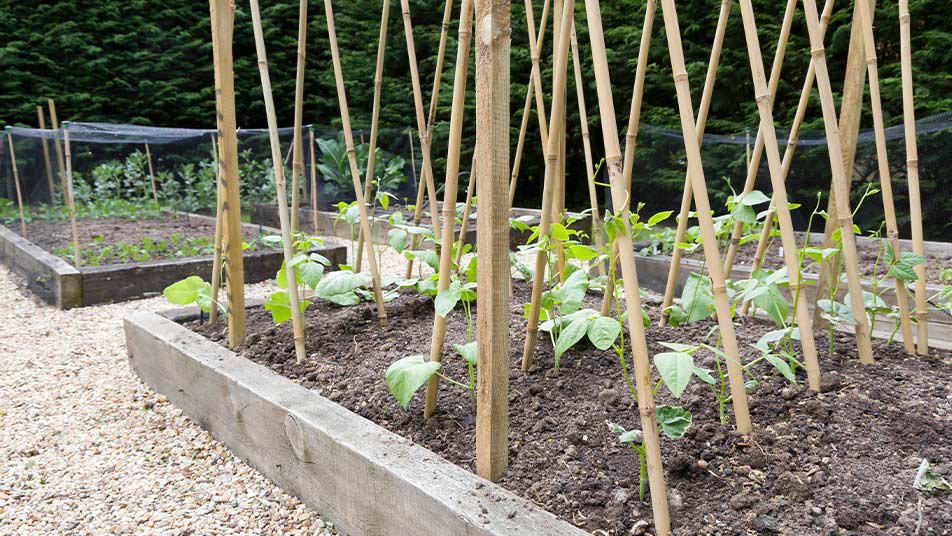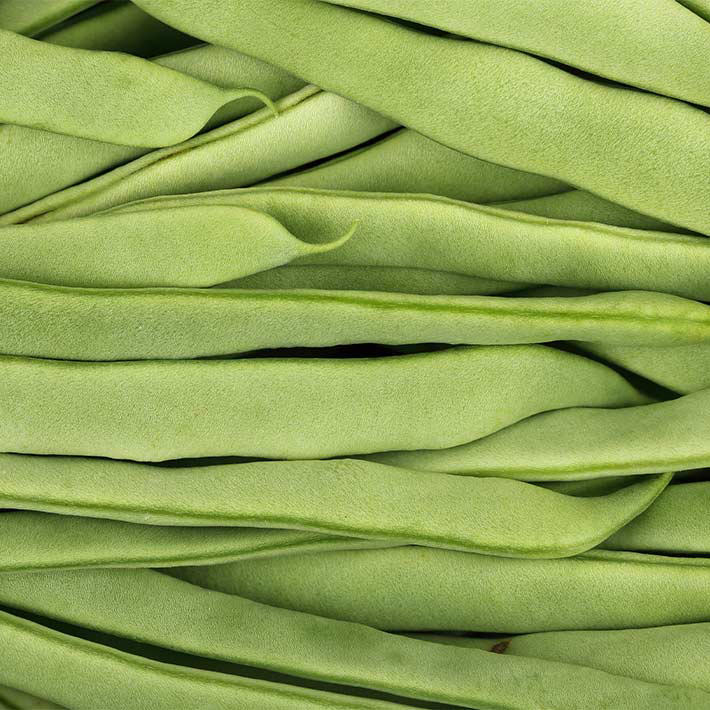When to Harvest Runner Beans
How long runner beans take to grow does depend on their care and weather conditions, but they should be ready to pick and eat at around 12-16 weeks after planting. You’ll know they’re perfect for picking once they get between 15-25cm long, depending on the variety. Try not to leave them any longer, as you may find they go stringy.
A Step by Step Guide: How to Plant Runner Beans
To start, you can grow your runner beans in pots following these simple steps:
- Fill your plant pot with peat free compost, using one bean per pot.
- Dig your index finger 2 inches deep into the middle of the pot and place your seed in the hole.
- Cover this up with more compost and remember to water the seeds when they start to dry out.
- If you’re growing the seeds indoors, they will be ready to plant out when they have at least two “true leaves” fully open. You should also check they are fully rooted in their pots and make sure there is no frost outside.
- You’ll need to get them ready for the outside world first, through a process called hardening off. Ease them into the colder outside world by standing them in the garden or in a cold frame during the day for a week or so, bringing them in again at night.
- If you’re growing the seeds outdoors, make sure to sow your seeds in a warm position and protect from any cold, late spring weather.
One great way to train runner beans is by using a wigwam support, like so:
- Find an open, sunny spot in your garden with good well-drained soil and add lots of compost or manure.
- Gather four or more bamboo canes and place them in a circle in the soil, tied together at the top.
- Dig a small hole and plant one runner bean next to each cane base, loosely tying each one as it grows around the cane.
The Specifics
Which way up to plant runner beans: The good news is that whichever way you plant your seed, the roots will grow downwards into the soil.
How far apart to plant runner beans: You should always plant your runner beans at least 6 inches apart.
How deep to plant runner beans: Aim for approximately 2 inches deep into the soil.

Growing Your Runner Beans
Now you’ve planted your runner beans, you’ll want to keep an eye on them as they grow. They’re extremely thirsty plants and you’ll need to check they have enough water each day during dry weather. Test the soil by feeling how damp it is, if it’s dry then apply a full watering can such as this one, between three plants.
A final top tip: once your runner beans are ready for eating, be sure to pick them regularly as this signals them to keep flowering and producing beans. For the most successful results, we’d suggest every 2-3 days. Enjoy!

Know Your Runner Beans
Runner Bean ‘Scarlet Emperor’
This is a traditional type of runner bean that has been grown in Britain for centuries and continues to produce lovely green pods with lots of great flavour.
Runner Bean ‘Painted Lady’
This type of runner bean is loved in equal measures for its marvellous red and white flowers, as well as its easy-to-grow tender beans.
Runner Bean ‘Hestia’
These plants are great to grow when saving space as they’re of the dwarf variety and bring lots of bright colours and a good crop to your garden.
